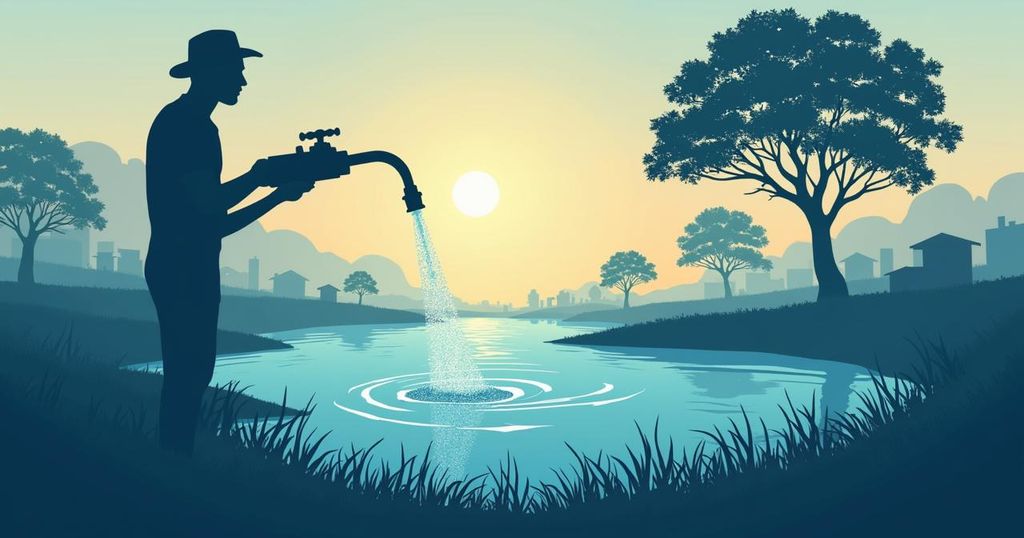Urgent Water Safety Concerns in Southeast Following Hurricane Helene

One week after Hurricane Helene struck Florida, health officials warn that thousands in the Southeast face urgent threats from contaminated water and mold. Over 180 deaths are reported, with extensive boil water advisories in effect across several states. The federal government, led by President Biden and Vice President Harris, is mobilizing assistance to aid recovery efforts.
Following the aftermath of Hurricane Helene, health officials are raising significant concerns regarding access to clean water in the Southeastern United States. While floodwaters begin to recede, many communities are grappling with the consequences of water contamination and mold infestation. Over 180 storm-related fatalities have been recorded, and thousands remain without power or clean drinking water, a week after the hurricane struck Florida, delivering torrential rainfall throughout the region. In North Carolina, the Department of Health and Human Services indicated that approximately 160 boil water advisories are currently in effect. Additionally, 27 water treatment facilities are non-operational due to the storm’s impact, resulting in a dire need for potable water, particularly for the nearly 100,000 residents of Asheville, who may face weeks before access is restored. States including Florida, Georgia, Tennessee, and Virginia are similarly navigating boil water advisories and conservation directives. According to disaster epidemiologist Jennifer Horney, “Access to clean water is one of the most urgent health concerns after a flood. People need water for drinking, preparing food, cleaning, bathing, even flushing toilets. Contact with contaminated water can cause serious illnesses.” The health risks associated with floodwaters—such as gastrointestinal illnesses, dehydration, and risks from improper generator usage—are compounded for vulnerable populations, including pregnant women, who may experience increased risks of preterm labor. Additionally, mold exposure can exacerbate respiratory conditions such as asthma. Hurricane Helene, categorized as a Category 4 storm at its peak, made landfall in Florida and inflicted extensive damage across several Southern states, leaving federal and state authorities working swiftly to provide relief. President Biden and Vice President Kamala Harris have visited afflicted areas, emphasizing the federal government’s commitment to supporting recovery efforts, which are anticipated to be prolonged.
The article presents a significant public health concern following Hurricane Helene’s impact, focusing on the immediate repercussions of floodwaters on access to safe drinking water in the U.S. Southeast. It details the situation in various states, highlighting the measures being taken to address water safety concerns and the multifaceted health risks posed by contaminated water, particularly for vulnerable populations.
The aftermath of Hurricane Helene underscores critical public health challenges, primarily related to access to clean water in the Southeastern United States. With many regions still recovering from the hurricane’s devastating effects, the emphasis remains on ensuring the safety and health of residents while addressing long-term recovery and rebuilding efforts. Coordinated federal assistance is crucial for communities grappling with ongoing health risks from contaminated water and prolonged recovery processes.
Original Source: www.axios.com







